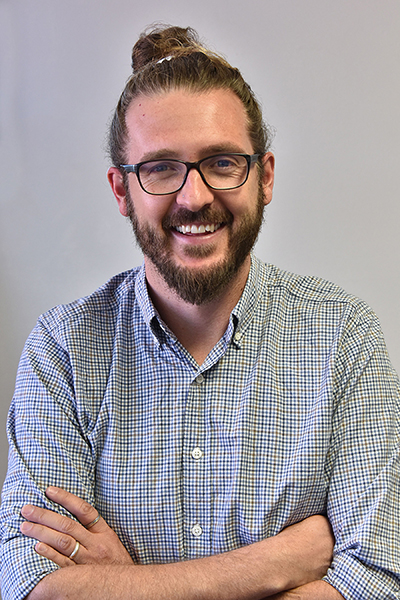
Dr Rory Pilossof is a senior lecturer in
Economics at the UFS, a postdoctoral fellow
in the ISG, and a Research Fellow
at the University of Kent in the UK.
Photo: Charl Devenish
Dr Rory Pilossof is a senior lecturer in Economics at the University of the Free State (UFS), a postdoctoral fellow in the International Studies Group at the UFS, and a Research Fellow at the University of Kent in the UK.
He became interested in his research field when he studied land reform and land issues in Zimbabwe for his PhD at the University of Sheffield. From there, his research interests have expanded to look at other issues connected to land, such as whiteness and labour.
Issue of land reform
Dr Pilossof's study field links up with the important issue of land reform in Southern Africa, due to its past colonialism and post-colonial politics of land and land ownership. These intersect with a wide range of labour issues that are pressing in the region. He has a keen interest in elite transitions and changes in economic structure in Southern Africa since the 1960s.
Dr Pilossof was nominated to the
South African Young Academy of Science in 2017, and received an NRF Y1 rating during 2017. He is also a member of the Amsterdam-based International Institute for Social History’s ‘Global Collaboratory on the History of Labour Relations’. He is a participant in the Leverhulme Trust-funded initiative Comparative History of Political Engagement in Western and African Societies Programme at the University of Sheffield.
Alternative ways of looking at change
Dr Pilossof's primary research focuses on issues of land, labour, and changing social and economic structures in Zimbabwe and South Africa. He is also interested in finding alternative ways of looking at change. To this end, he has studied various newspapers and periodicals in the region.
Currently, he spends most of his research time as part of a three-year British Academy-funded Advanced Newton Fellowship into labour relations and occupational structures. In future, he wants to expand his research in the labour field by looking at labour and migration in the region over the course of the 20th century.